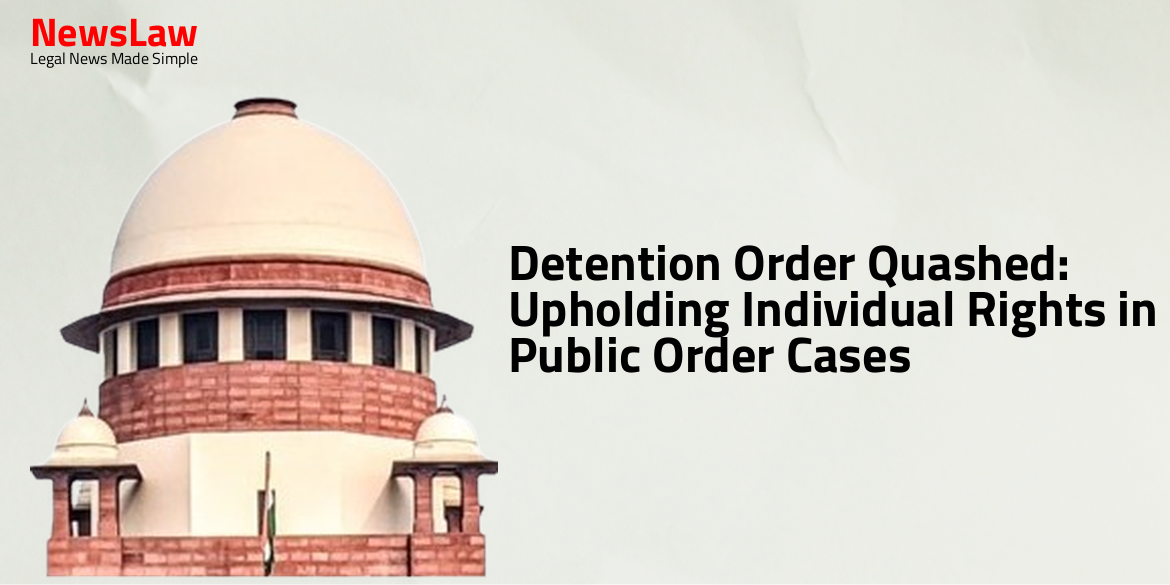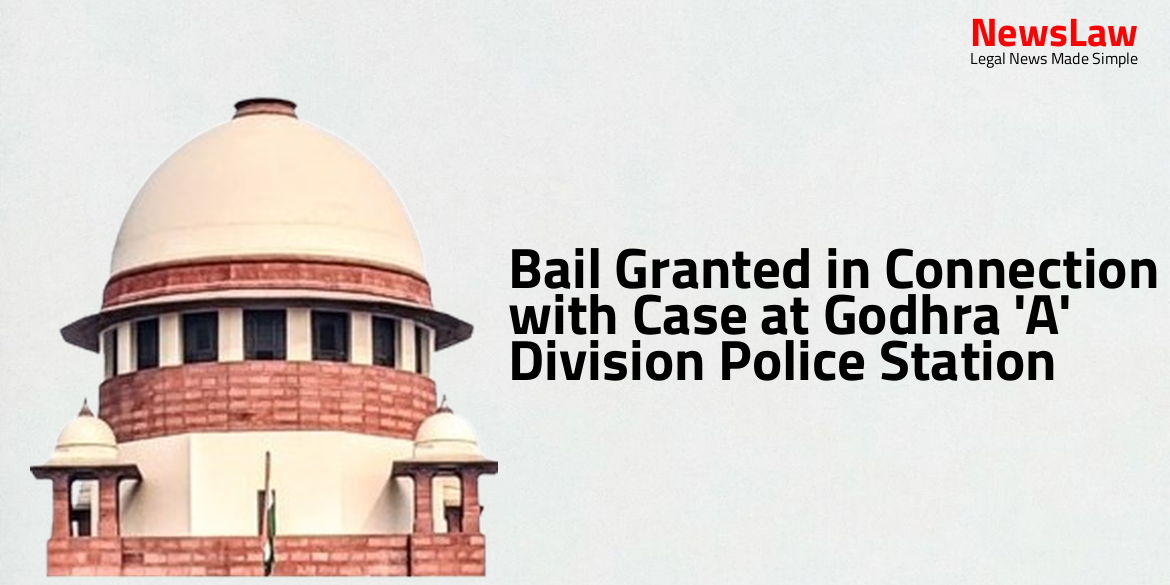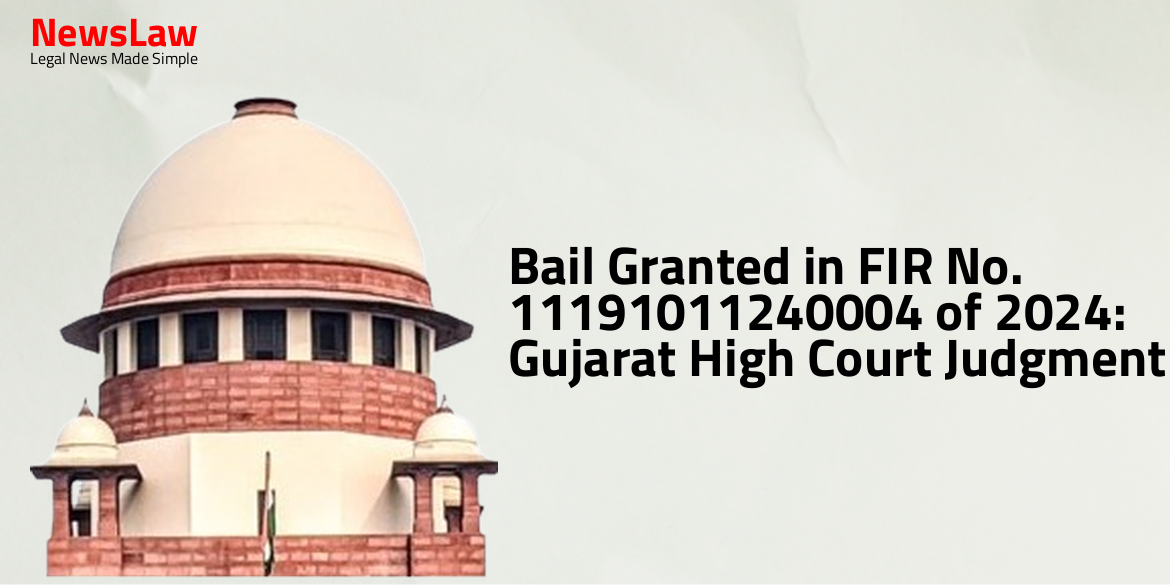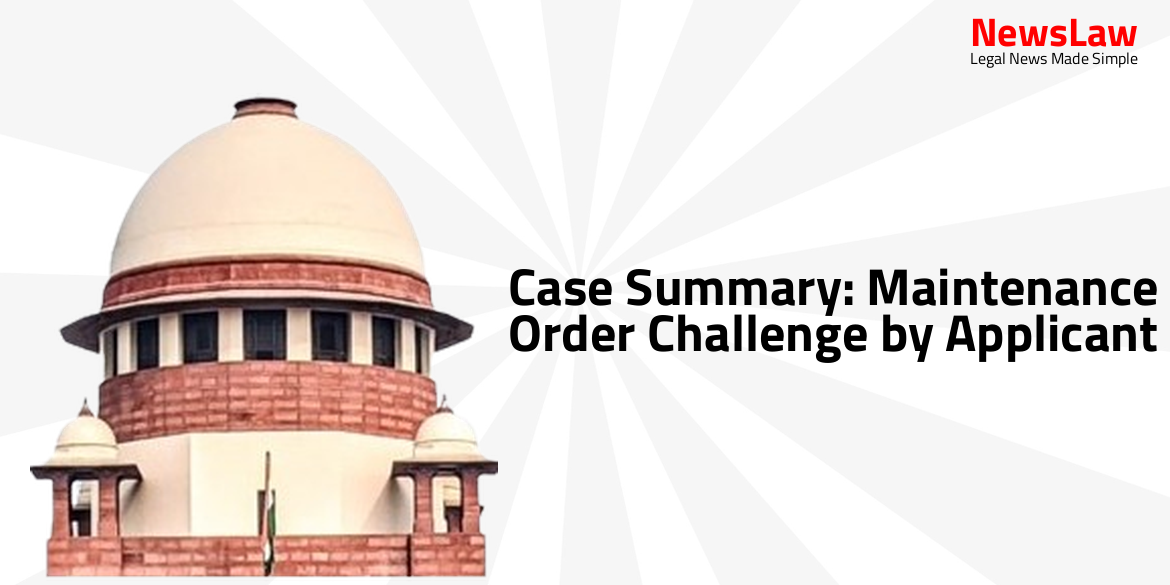The present case before the Gujarat High Court involves a challenge to a detention order dated 20.01.2024 passed under the Gujarat Prevention of Anti-Social Activities Act, 1985. The detaining authority detained the individual under Section 3(1) of the Act, raising key questions regarding individual rights in matters concerning public order. Stay tuned for more insights from this significant legal ruling.
Facts
- The present petition challenges the order of detention dated 20.01.2024 passed by the detaining authority under the Gujarat Prevention of Anti-Social Activities Act, 1985.
- The detaining authority has detained the petitioner under Section 3(1) of the Act.
- The petitioner is considered as the detenue under Section 2(c) of the Act.
Issue
- Whether the case involves a substantial question of law as to the interpretation of the Constitution of India or any order made thereunder.
Arguments
- Petitioner’s advocate argues that the order of detention should be quashed as it is solely based on the registration of five FIRs.
- The alleged illegal activities do not have a nexus with the maintenance of public order, rather they are seen as a breach of law and order.
- No material beyond witness statements and FIR registration shows that the detenue’s activities fall under the category of breach of public order.
- The activities of the detenue, even in relation to the criminal cases, have not caused disturbances to the social fabric or posed a threat to normal life.
- The detenue is released on bail for all offenses, indicating that confinement may not be necessary.
- Detaining authority’s subjective satisfaction not legal or valid according to the law
- Offences alleged in FIRs do not relate to public order as required under the Act
- Other relevant penal laws sufficient to address the situation
- Allegations against the detenue are not relevant for Section 2(c) of the Act
- Learned AGP supports the detention order, citing sufficient evidence and materials
- Detenue shown to be habitually engaging in activities defined under Section 2(c) of the Act
- Detaining authority justified in passing the detention order based on the facts of the case
Analysis
- District Magistrate entitled to take action under Rule 30(1)(b) to prevent subversion of public order, not for maintenance of law and order under usual circumstances.
- Three concentric circles analogy used to explain the different levels of threat to public order.
- No application for cancellation of bail by State authorities mentioned in the order.
- No substantial evidence to suggest detenue poses actual danger to public order.
- Detenue can only be detained under Section 2(c) of the Act if proven to be a threat to society and disrupt the social apparatus significantly.
- The distinction between disturbance to ‘law and order’ and disturbance to ‘public order’ is clearly settled by a Constitution Bench in the case of Dr. Ram Manohar Lohia vs. State of Bihar.
- Disturbance of law and order leading to disorder is not sufficient for action under the Defence of India Act, but disturbances subverting the public order are.
- Personal liberty protected under Article 21 is of utmost importance, and any detention must meticulously follow the established legal procedures.
- A mere registration of FIRs does not necessarily indicate a breach of public order, and there must be relevant and cogent material for invoking power under the Act.
- In recent decisions by both the Apex Court and the High Court, it has been emphasized that a mere breach of law and order is not enough for preventive detention, it must be a disturbance affecting public order.
- Several detention orders have been quashed in the last five years for incorrectly applying the standards for maintenance of public order and relying on stale materials.
- The enforcement of law and order is different from the maintenance of public order, with the latter needing a broader impact on the community or public at large.
- Preventive detention should not be a substitute for the ordinary law, and detaining authorities should exercise caution and proper judgment in issuing such orders.
- Every disorder does not meet the threshold of disturbance to public order, unless it affects the community at large.
- The exceptional powers of preventive detention were inserted into the Constitution to prevent arbitrary exercise of state authority, emphasizing the importance of personal liberty and proper application of detention laws.
- When passing detention orders, authorities must consider Articles 21 and 22 of the Indian Constitution.
- Article 22 should be viewed as an exception to Article 21.
- Article 22 cannot be interpreted in isolation and must be read in conjunction with Article 21.
- Authorities need to balance individual rights under Article 21 with the exceptions allowed under Article 22 when issuing detention orders.
Decision
- Rule made absolute to the aforesaid extent.
- The petitioner – detenue is ordered to be set at liberty forthwith, if not required in any other case.
- Direct service is permitted. Apply only in rare and exceptional cases.
Case Title: PANKAJ @ SARKAR RAJUBHAI BHAVSAR Vs. STATE OF GUJARAT
Case Number: R/SCA/4083/2024



